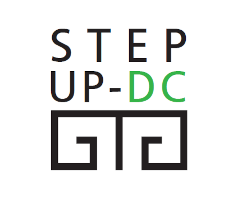|
- Jackson, R. (2014) Signposts –Policy and practice for teaching about religions and non-religious world views in intercultural education, 1. The recommendation: background, issues and challenges (pp. 13-20) and The full text of the recommendation (pp. 115-122)
- Jackson, R. (2014) Signposts –Policy and practice for teaching about religions and non-religious world views in intercultural education, 2. Introducing Signposts and its key themes (pp. 21-36)
- Johannessen , Ø., & Skeie , G. (2019). The relationship between religious education and intercultural education, Intercultural Education. Intercultural Education, 30(3), 260-274. doi:10.1080/14675986.2018.1540142
|
|
Ξενόγλωσσες Πηγές
- Heilburn, R. (2021). Education as Social Practice. In G. Biesta & P. Hannam (Eds.) The Forgotten Dimensions of Religious Education? (pp. 20-35). Brill I Sense
- Zembylas , M., & Loukaidis, L. (2018). Emerging relationships between religious education and citizenship education: teachers’ perceptions and political dilemmas in Cyprus. British Journal of Religious Education, 40(2), 169-181. doi:10.1080/01416200.2016.1209459
- Østberg, S. (2013). Diverisity and Citizenship in a Context of Islamophobia. In J. Miller, K. O'Grady, & U. McKenna (Eds.), Religion in Education. Innovation in International Research (pp. 58-71). New York/London: Routledge.
- Kjelden, K. (2016). Citizenship and RE: Different Interpretations in Discourse and Practice: A Case from Denmark. In J. Berglund, Y. Shanneik, & B. Bocking (Eds.), Religious Education in a Global-Local World (pp. 145-164). Springer.
- Roebben, B. (2008). Fellowship of fate and fellowships of faith: religious education and citizenship education in Europe. Journal of Beliefs & Values, 29(2), 207-211. doi:10.1080/13617670802289718
- Barnes, P.L. (2017). Democracy, political salvation, and the future of religious education. In M. Shanaham. Does Religious Education Matter?. (pp. 169-184). London: Routledge
- Koukounaras Liagkis, M. (2013). Religion in the Curriculum in the post-modern era: Why young people should know about religion? International Journal for Cross-Disciplinary Subjects in Education, 3(1), σσ. 1373-1378. doi:10.20533/ijcdse.2042.6364.2013.0191
Ελληνόγλωσσες Πηγές
- Κουκουνάρας Λιάγκης, Μ. & Ρεντζή, Π. (2020). Η Θρησκευτική Εκπαίδευση στην Ελλάδα και την Ευρώπη και η μάθηση «για» τη δημοκρατία και τα ανθρώπινα δικαιώματα. Στο Β. Πλιόγκου & Δ. Καρακατσάνη, Σύγχρονες τάσεις στην Παιδαγωγική θεωρία και πρακτική. Δημοκρατία-Πολιτειότητα-Ετερογένεια, (σσ. 38-65). Αθήνα: Gutenberg
- Κουκουνάρας Λιάγκης, Μ. & Βαλλιανάτος Α. (2019). Ο θρησκευτικός γραμματισμός στην εκπαίδευση και την κοινωνική παρέμβαση. Mε Α. Βαλλιανάτο. Στο Ν. Χολέβα (Επιμ.), Κι αν ήσουν εσύ;- Θεατροπαιδαγωγικές δραστηριότητες για την ευαισθητοποίηση στα ανθρώπινα δικαιώματα και σε θέματα προσφύγων, (σσ. 116-126). Αθήνα: Πανελλήνιο Δίκτυο για το Θέατρο στην Εκπαίδευση, UNHR
- Κουκουνάρας Λιάγκης, Μ. & Κολάση, Δ. (2020). Παγκοσμιοποίηση και εκπαίδευση: ο ρόλος της θρησκείας στα Αναλυτικά Προγράμματα, Εκπαιδευτικός Κύκλος, 8(2), 39-51, 2020
|
